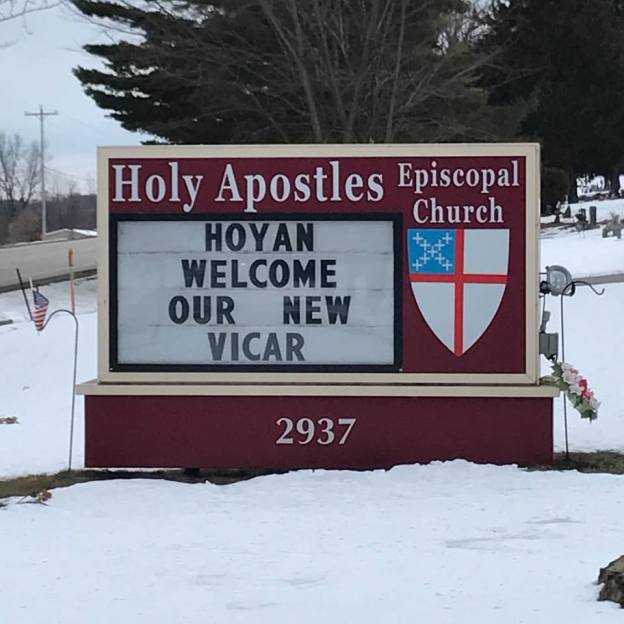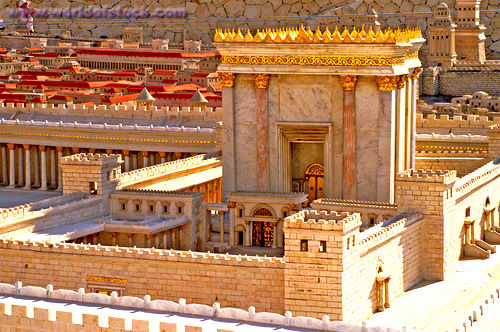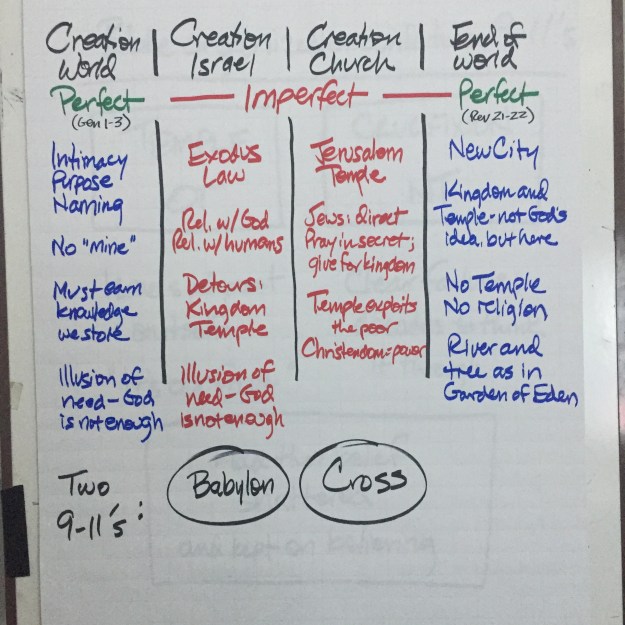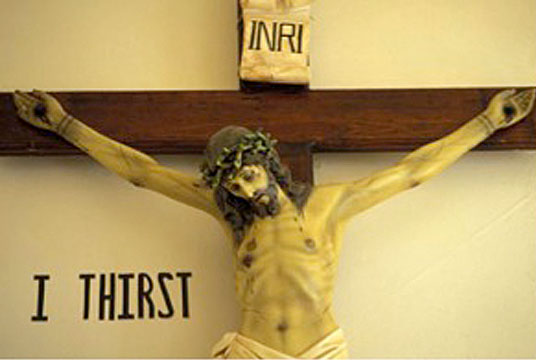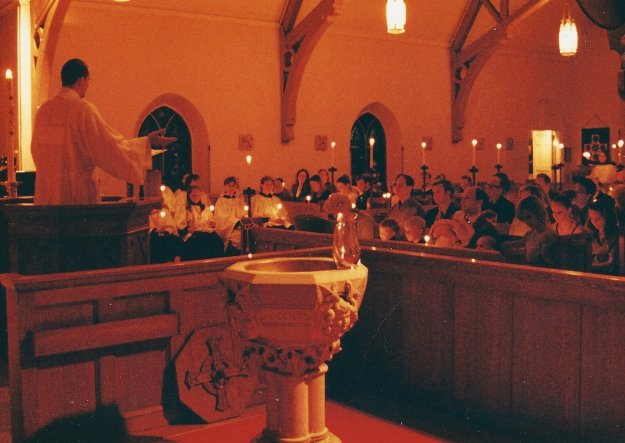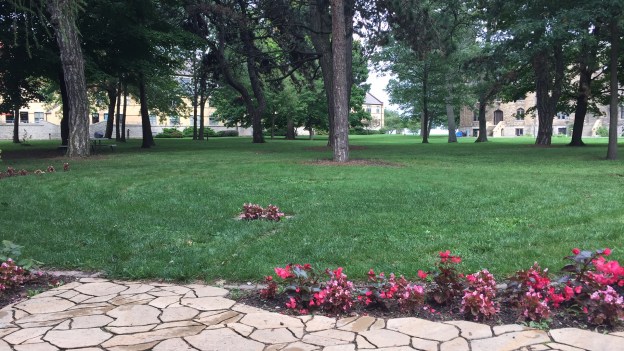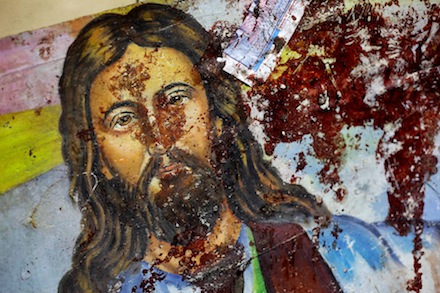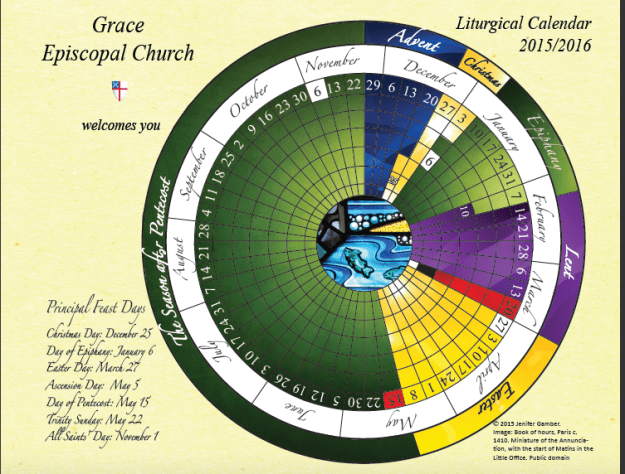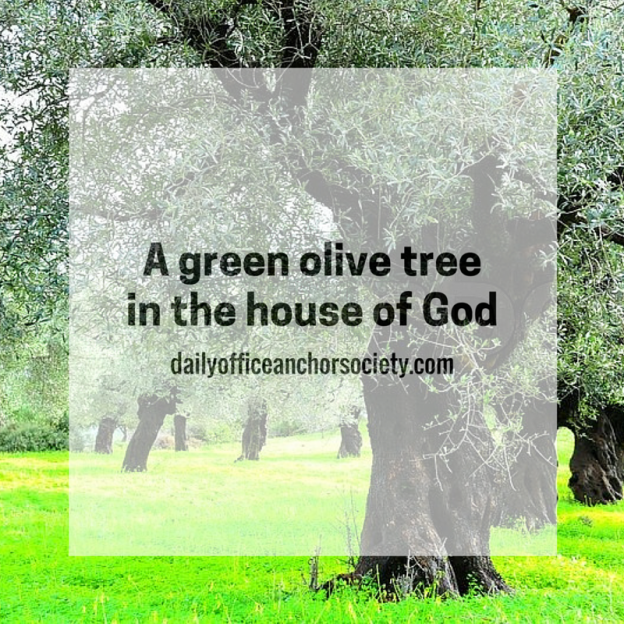“This is my Son, the Beloved; with whom I am well pleased.”
I am among the most fortunate of people, because I know that my father loved me.
In a picture from when I was just a couple years old, you can see his hand touching my cheek, a simple gesture of physical affection that characterized his relationship with me and our whole family.
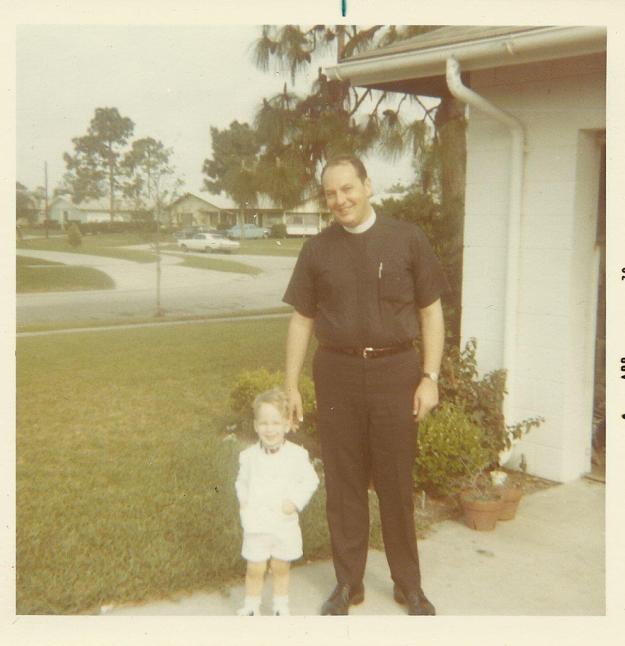 He held me in his arms (and he held my mother and my siblings, too), and he told me he loved me in countless ways. When I shared that picture on Facebook, my sister instantly responded that she recognized his gesture — the “sense memory” is as strong for her as it is for me.
He held me in his arms (and he held my mother and my siblings, too), and he told me he loved me in countless ways. When I shared that picture on Facebook, my sister instantly responded that she recognized his gesture — the “sense memory” is as strong for her as it is for me.
The last time I served as a deacon at the altar with him before he died, a similar account of the Transfiguration of Our Lord was the appointed Gospel reading. After I read the Gospel, Dad got up to preach but then stopped, saying, “I’m going to do something I’ve never done before. I’m going to sit down, because this is my son, my beloved, and I want to listen to him. I want to hear what he has to say.”
My wife and I have spoken many times about what a blessing it is for both of us to have had this kind of unconditional love in our lives. Even though we do not have children of our own, we have been privileged to share our love with others, especially our “emotional daughter” Anna and our grandson Alex.
You have it in your power to give this kind of love, too. You can be for another person — a child or a grownup — the same kind of blessing that my father was. You can embrace them in the kind of love that God the Father has for all of his children.
Who is your beloved? Who needs to feel the touch of your hand on their cheek and hear from you that you are well pleased with them?
+ + + + +
Jesus heard these words from God at his baptism in the Jordan River.
Baptism was for him, as it is for us, an act full of symbolic meaning.
Our service of Baptism in the Book of Common Prayer outlines several symbolic meanings that the water holds for us.
We thank you, Almighty God, for the gift of water. Over it the Holy Spirit moved in the beginning of creation. Through it you led the children of Israel out of their bondage in Egypt into the land of promise. In it your Son Jesus received the baptism of John and was anointed by the Holy Spirit as the Messiah, the Christ, to lead us, through his death and resurrection, from the bondage of sin into everlasting life.
We thank you, Father, for the water of Baptism. In it we are buried with Christ in his death. By it we share in his resurrection. Through it we are reborn by the Holy Spirit. Therefore in joyful obedience to your Son, we bring into his fellowship those who come to him in faith, baptizing them in the Name of the Father, and of the Son, and of the Holy Spirit.
Now sanctify this water, we pray you, by the power of your Holy Spirit, that those who here are cleansed from sin and born again may continue for ever in the risen life of Jesus Christ our Savior. (BCP 306-7)
Today, as we celebrate the Feast of the Baptism of Our Lord Jesus Christ, we will renew our own Baptismal Covenant and our baptismal vows.
The vows are not about how to earn God’s favor. Rather, they are promises we make about how we will live as God’s beloved children, how we will “continue forever in the risen life of Jesus Christ our Savior.”
Baptism is to us a sign of God’s grace pouring over us; the promises we make are about what we will do in practice to share that grace with each other and with the world.
Will you continue in the apostles’ teaching and fellowship, in the breaking of bread, and in the prayers?
That is, will you practice being graceful and generous with your fellow parishioners, your clergy, and your fellow-Christians? Will you practice prayer that keeps you in touch with God and the needs of God’s people?
Will you persevere in resisting evil, and, whenever you fall into sin, repent and return to the Lord?
That is, will you practice demonstrating grace by standing firm against those who do harm to others, and by recognizing when you are the one doing harm and making amends to those you have hurt?
Will you proclaim by word and example the Good News of God in Christ?
Being a Christian is meaningful to you; will you practice telling other people about God’s blessings? Will you practice showing them that you have God’s peace?
Will you seek and serve Christ in all persons, loving your neighbor as yourself?
We had diversity and inclusion training at my work this week, and we learned that promoting diversity requires conscious action. It’s easy to be with people like yourself, but you have to practice choosing to be with people who are different.
Will you strive for justice and peace among all people, and respect the dignity of every human being?
That is to say, will you practice remembering that every human being craves the touch of a father’s hand on their cheek, the loving embrace of a mother, the gentle word from a friend? Will you practice sharing that love with others and will you practice encouraging those in power to make sure people are being cared for?
As baptized Christians, we are filled with the grace and power of the Holy Spirit and marked as Christ’s own forever.
That means you have it in your power to practice the kind of love that Jesus practiced. You can be for another person — a child or a grownup, a neighbor or an enemy, someone who is poor or someone in power — you can be for them the same kind of blessing that Jesus was.
You can embrace them in the kind of love that God the Father has for all of his children and demonstrate Jesus’ self-giving love by your actions.
Who is your beloved? Who needs to feel the touch of your hand on their cheek and hear that God (and you) are well pleased with them?

